Nigeria’s telecommunication history started from the colonial era in 1886, when telegraphic submarine cable lines were laid by the British firm, Cable & Wireless Ltd, connecting Lagos to London. This led to the installation of phone lines, connecting the famed commercial hub to Jebba, Ilorin, Calabar, Ibadan and other parts of the country.
It is worthy of note that the establishment of telephone lines aided other forms of communication in Nigeria like the radio, television, and internet.
The era of NITEL
Nigeria Telecommunications Limited (known as NITEL) was established in 1985. NITEL was owned by the government and given monopoly status in the communication sector. The firm was formed through the welding together of two government entities – the telecoms arm of the Posts and Telecommunications (P&T) department under the Ministry of Communications, and the Nigerian External Communications (NET).

[READ MORE: Improve service quality or risk sanction – NCC warns Telcos]
Posts and Telecommunication dealt with internal communication services in Nigeria. Services rendered by P & T were telegraph services and a manual telephone exchange service with a magneto switchboard of 100 lines introduced in Lagos by 1908.
On the other hand, Nigerian External Communications was for external purposes as colonisation had done a good job of connecting Lagos and London through a telegraph service. The company, which produced these services, African Direct Telegraph Company, became Imperial and International Communications after a merger. It transformed into Cable and Wireless later.
Nigeria sought a partnership with Cable and Wireless. This led Nigeria into acquiring an interest in the Nigerian arm of Cable and Wireless and renaming the company Nigerian External Telecommunications (NET). NET did well by providing international telephone, telex and telephone services to major cities in Nigeria like Ibadan, Enugu, Kaduna, and Port-Harcourt. It was credited with the introduction of international Direct Dialing Services.
Poor services
P&T and NET had their fair share of ineffective services. They were mostly run with analogue infrastructure and needed a wave of digital transformation. Also, the lines were congested, the billing system was inefficient and the call completion rate for long-distance calls was below 50%. Generally, NITEL was plagued by a list of complaints, so reforms for better communication services began.

Telecommunication reforms
The deregulation of the sector heralded the establishment of the Nigerian Communications Commission (NCC) as prescribed by Decree 75 of 1992. The decree establishing the NCC helped to liberalize terminal ends equipment, and gave room for competition and private sector participation.
The deregulation meant that the NITEL regime, which was characterized by poor communication service, was over. Even though NITEL retained its monopolistic rights, new players were introduced into the industry.
[READ ALSO: Will there ever be a day the NCC withdraws a Nigerian telco’s license?]
The era of GSM
Nigerian telecommunications received a great boost with the coming of the Global System for Communication (GSM) in 2001. Econet (now Airtel) has been said to be the first telecommunication service to launch its services in Nigeria on August 8, 2001, going head-to-head with MTN which also began operations in August of the same year.
They were given renewable GSM licenses, which had a 5-year expiration date, and allowed them to operate within the 850 MHz and 1900 MHz spectrum bands. Specific targets were set for the operators by the NCC. Some of the targets were a minimum of 100,000 subscribers each in the beginning year of operations, 1.5 million subscribers in the next five years, and a minimum of 5% geographical coverage within each of the country’s geopolitical states.
The goal was efficiency and NCC was committed to achieving a secure and efficient mobile network.

One important feature of the initial era of the GSM was the prestige accorded to phone owners. At that time, only the wealthy could own phone, as it cost N80,000 – N100,000 and not many could afford it. The popular phone brands were Nokia, Sagem, and Samsung.
MTN, which kept innovating at the time, brought about the SIM (Subscriber Identity Module) which helped to enhance call rates. Registering a line was as costly as having a phone. Line registration was pegged at N40,000 to N50,000, however phone billing rates were charged on the minute basis (N50 per minute).
Globacom, established by Mike Adenuga, brought per second billing as its unique offering. The entry of MTN, Glo and Airtel helped the evolution of Nigeria telecommunication and created better services for Nigeria.
Some of those old phone models were Nokia 3310, Nokia 1200, Nokia 1208, Motorola XT1032, Samsung C140.
An overview of industry players
Globacom
As of December 2018, GLO had over 45 million subscribers, making it the second-largest network operator in Nigeria. It introduced lower tariffs and other value-added services.
In 2011, GLO became the first telecommunication company to build an $800 million high-capacity fibre-optic cable known as Glo-1, a submarine cable from the United Kingdom to Nigeria. It is the first successful submarine cable from the United Kingdom to Nigeria.
MTN
MTN built 3,400 kilometres Yello Bahn cable which gives it a wider coverage all over Nigeria. The telco paid $285 million for one of four GSM licenses in Nigeria in January 2001. It has spent more than $1.8 billion in strengthening its mobile telecommunications infrastructure in Nigeria.
Since its launch in August 2001, MTN has steadily deployed its services across Nigeria. It now provides services in 223 cities and towns, more than 10,000 villages and communities and a growing number of highways across the country, spanning the 36 states of Nigeria and the Federal Capital Territory, Abuja.

Airtel
Airtel Africa is a leading provider of telecommunications and mobile money services, with a presence in 14 countries in Africa, primarily in East Africa and Central and West Africa.
It has gone through several rebranding regimes from Econet to Vmobile, Zain, Celtel, then Airtel. As of March 2019, Airtel had over 99 million subscribers in the continent. It is listed on the London Stock Exchange and is a constituent of the FTSE 250 Index.
Etisalat
Etisalat Nigeria launched in 2008 as one of the first major broadband services in the country. The company is known for its innovative products and services such as the Eco Sim and being the first network to offer special numbers to Nigerians as their mobile numbers via the 0809uchoose campaign
In 2013, Etisalat Nigeria signed a $1.2 billion medium-term facility with 13 Nigerian banks, which it used to refinance an existing $650 million loan and fund modernisation of its network.
The banks that were involved in the loan deal include Zenith Bank, GT Bank, First Bank, UBA, Fidelity Bank, Access Bank, Ecobank, FCMB, Stanbic IBTC Bank and Union Bank.
However, Etisalat struggled to repay the loan. While the banks pushed forward to acquire Etisalat, the NCC intervened and waded into the troubling water.The intervention by NCC led to Etisalat withdrawal from the market after its debt was not repaid or rescheduled. The local operator then renamed itself 9mobile in July 2017.
[READ FURTHER: NCC moves to track cybercriminals]
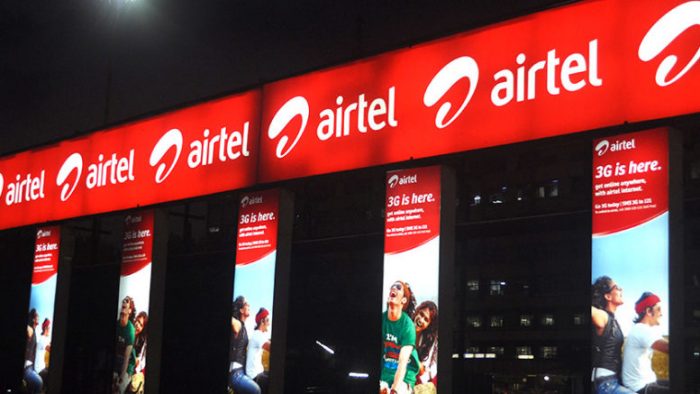
Ntel
Ntel is a spinoff from the defunct telecoms company, NITEL. The Nigerian government handed over NITEL/Mtel assets to NATCOM (Ntel’s parent company) in a deal worth $252 million last year. This was after the company went through a period of botched sales and divestment. Established in 2016 with offices in Lagos and Port Harcourt, and a plan to come back bigger and better, Ntel has begun to rejig its services.
Conclusion
One thing about Nigeria’s telecommunications industry is the improvement of its services over time. It has gone from the era of analogue phone lines to the digital era of smartphones and wireless connections. The current state of the sector may not be perfect but Nigeria’s telecoms development has come a long way indeed.

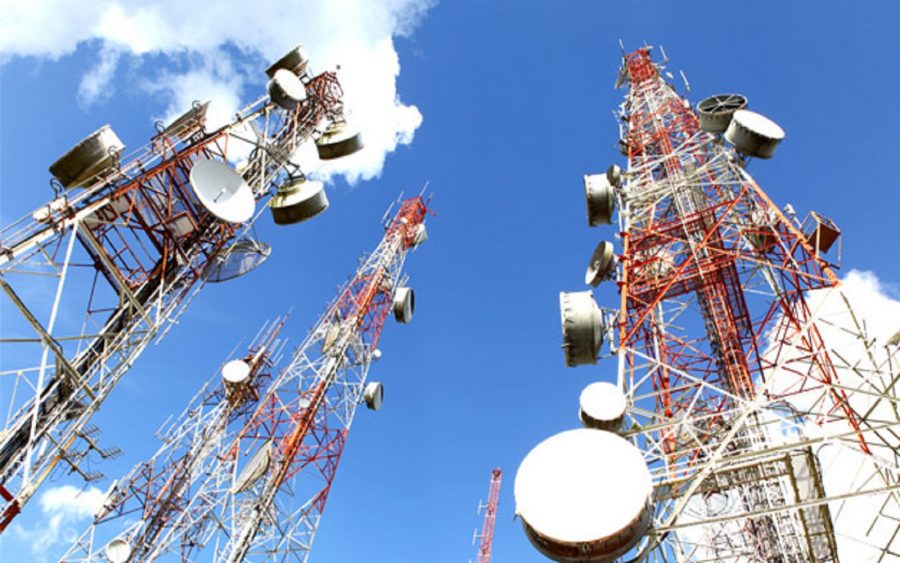






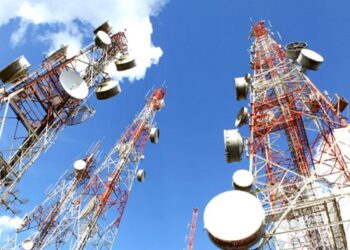

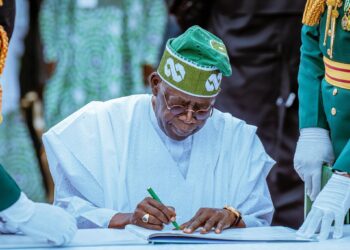
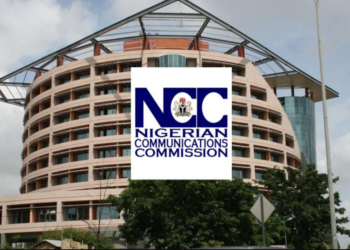
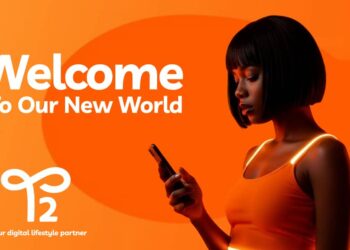










Your article does not do justice to the existence of CDMA providers alongside. Multilinks,Intercellular etc. It is therefore not a wellreseearched article.
The only thing what i want say, thank for this fevorite research for we student.